
14 minute read
XpoNorth gets more creative
2020 has been an unimaginable year for us all, but for those working in the creative industries, a sector comprised largely of sole traders, freelancers and micro-businesses, it has left many in unchartered territory.
With live music, dance and theatre shows postponed, filming schedules thrown into disarray, workshops, fairs and exhibitions cancelled, and cultural venues closed or operating at reduced capacity, few creative professionals have been unaffected.
Advertisement
Yet, amongst the unfamiliar and challenging new ways of working, new possibilities and alternative perspectives have emerged. Creative cross learning is something that XpoNorth has always sought to support, but this year the need for creative professionals to be seen, supported, inspired, and connected was more important than ever.
XpoNorth is Scotland’s leading creative industries conference held annually in Inverness, attracting around 2,000 people across the two-day event in June. It also provides specialist year-round support to the creative industries across the Highlands and Islands.
Iain Hamilton, head of creative industries at HIE, explains:
“COVID forced a radical change of plan. In a very short space of time, the entire conference was moved online, delivered via the XpoNorth website, social media channels, and Socio app. This included 35 webinars and interviews, 89 individual speakers, two film screenings, plus networking events.
“It was quite a task to pull off, and we were one of the first in the UK to deliver such an ambitious programme of events in this new digital format. I’m delighted to say that it was a fantastic success. Our audience increased, with 5,600 people engaging with the content.
“All the webinars and talks are now available to watch on either the app or XpoNorth YouTube channel, so people can still make the most of it, and enjoy some of the fantastic sessions we had, which covered music, writing and publishing, screen and broadcast, craft, fashion and textiles, heritage, and digital technology.” The XpoNorth team is now working towards a hybrid model for next year’s conference – and the app has been future-proofed to allow the most interactive experience possible, and to be grown as a knowledge-networking tool.
XPONORTH HERITAGE LAUNCHES AT CRITICAL TIME FOR SECTOR
XpoNorth Heritage was a new offering for 2020, initially launched in February as a one-year pilot programme to help heritage organisations find new ways to connect with audiences, while creating new revenue opportunities.
Museums and heritage centres play an essential role in preserving and supporting the region’s sense of self and culture – and also its economic success. Highlands and Islands history has long captured the imaginations of people from around the world; the challenge is to find ways to bring historical objects and archival information from the physical world and make them more accessible in the digital.
As coronavirus forced museums to close in March, resulting in an immediate loss of earnings and audience engagement, the XpoNorth Heritage initiative couldn’t have come at a more opportune time.
FOCUS spoke to Vanessa Martin of West Highland Museum in Fort William about the impact COVID has had on the organisation.
CASE STUDY: WEST HIGHLAND MUSEUM
As the West Highland Museum in Fort William approaches its 100th birthday, COVID-19 has pushed the museum to consider its future rather abruptly. The museum, whose collection includes Bonnie Prince Charlie’s death mask and treasure from the shipwrecked Spanish Armada, has embarked on a digital historical journey to reach new audiences and secure its long-term viability, supported by HIE and XpoNorth.
Museum Curator Vanessa Martin explains:
“Last year we welcomed 60,000 visitors to our small museum. We don’t charge an entry fee, but we rely on donations and gift shop sales. After six months of closure, we reopened on 4 September but in a very limited way. Visitors must now book a 10-minute slot, reducing daily capacity to 30 people. This has had a huge impact on our ability to generate revenue, but also to fulfill our prime purpose – share Highland history with as many people as possible.”
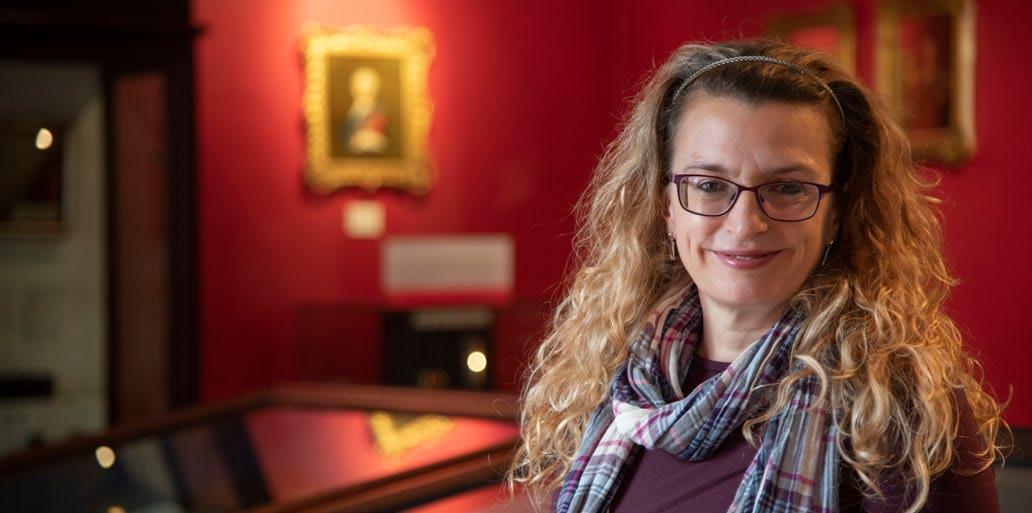
When the museum closed in March, the small team found itself in the unique position of being cash poor but time rich. After years of letting social media activity fall by the wayside, the museum significantly upped its online activity. Its ‘Mystery Object of the Week’ feature on Facebook proved particularly popular, with online followers growing steadily by the day.
Vanessa says: “Our ‘mystery’ 1920s St Kilda mail boat generated a lot of online conversation – and some very interesting guesses! It’s an odd-looking thing made from a sheep bladder, wood and string. The photo caught the attention of The Herald, which ran an article on the mail boat and the museum’s wider collection, which was great publicity for us.”
XpoNorth put the museum in touch with a digital heritage consultant, which inspired the creation of a Jacobite Lochaber Heritage Trail, hosted on Google Maps. The museum is now in the process of creating a Commando Trail. The digital heritage trails were a way for the museum to connect with people during lockdown, offering opportunity for learning and engagement in a safe way, and cultivating new audiences for the future.
A commemorative book showcasing the museum’s 100 best objects had been planned to mark its centenary in 2022. However, following an introduction to computer scientist Dr Alan Miller of the University of St Andrews, via the XpoNorth Digital Heritage Workshops, they will now work to create a digital resource. Vanessa explains that this will include 3D photography, video and virtual reproductions to create a more multi-layered and accessible commemoration product.
CASE STUDY: MUSEUMS AND HERITAGE HIGHLAND
Lockdown has brought the region’s heritage professionals closer together, strengthening the sector and creating useful links for the future. For the past six months, Museums and Heritage Highland (MHH), supported by XpoNorth, has been running fortnightly virtual ‘Heritage Cafes’ for its 21 museum members, and the wider Highland heritage sector, organising peer-topeer reviews and guest speakers.
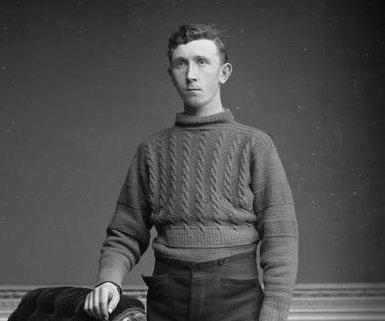
Now better connected and acquainted, the MHH museum members have plans in place to collaborate on their very first co-curated digital exhibition, which will focus on historical costume and clothing, to be launched next spring.
Heritage consultant Nicola Henderson, who works for both MHH and XpoNorth Heritage, says: “Our heritage cafes will continue for the foreseeable future, and the historical costume exhibition will be our primary focus during the winter. Everything we learn about the process, from securing funding, to finding the most suitable digital platform, we will share with the wider heritage sector, in the spirit of knowledge sharing and transparency.
“The exhibition will feature some beautiful items, including a matching waistcoat and jacket said to have belonged to Charles Edward Stuart, and a traditional Gansey jumper. Gansey jumpers were knitted to a village-specific pattern, often with a hidden stitch, so that should a fisherman be killed at sea, his next-of-kin could be identified just from his jumper.
“While we won’t be charging a fee for the virtual exhibition, we will be encouraging viewers to make a donation to the museums they can’t visit in person just now.”
Loosely inspired by the British Museum’s ‘History of the World in 100 Objects’ radio series, XpoNorth launched the ‘Highland Objects’ podcast series back in May, with support from MHH. Each short episode is dedicated to an object from a Highland museum or area, helping share the culture of the region with a dispersed digital audience. Nicola says: “We’re now on our 12th episode, and have had around 1,000 downloads so far. There are dedicated episodes to the Noss Head Light at Wick Museum, Rosemarkie Pictish Cross, and most recently, the Soldier’s Leap at Killiecrankie.” The series is available to listen on all major podcast streaming services.
JULIE FOWLIS: NEW CREATIVE PATHS AND COLLABORATIONS
Photo credit: Craig Mackay, Pictii

“I’m an optimist by nature, but it’s hard to put a positive spin on the situation,” says Julie Fowlis, the multi-award-winning Gaelic singer, brought up in North Uist and now based outside Inverness. “COVID-19 has shown in graphic detail the fragility In the spring, Julie was invited by BBC ALBA to host and participate in Ceòl aig Baile, a nine-part series of remote musical collaborations, where artists from around the world shared a virtual stage together. The first episode saw Julie and her y Gabriela in Mexico, and Zoë Conway and John McIntyre in Ireland. The musicians also had to cover the roles of sound engineer, lighting technician, camera operator, and set designer, something that Julie says in hindsight was quite a feat. With everyone ‘locked down’ at home and increasingly looking to music as a source of comfort, and artists looking for creative outlet, Julie said that social media came into its own, connecting dispersed artists and sparking new work. A conversation on Twitter led to her involvement in the filmmaker Mike Guest’s Dawn Days project. For every day in May, Mike created a short film that captured dawn on the Isle of Lewis. Julie contributed Òran an ròin (The song of the seal), a traditional Gaelic song from the perspective of the selkie people, tying in beautifully to the project’s focus on the space between land and sea. And from the ethereal to the everyday, Julie has noted that her own children seem to be adjusting well to virtual music lessons from home – and she sees that as something that may continue for the time being, now that the technology has shown what’s possible. HIE has been a welcome ‘open door’ during the pandemic, Julie
“XpoNorth this year was an amazing achievement. I attended of the music sector, particularly traditional music, where
industry, the engineers, cameramen and technical staff, Julie musicians rely heavily on live performance to generate income.”
Like thousands of other musicians, within the first month of the outbreak of the pandemic, Julie’s entire 2020 calendar of and performers, who can more easily diversify. With the live
work had vanished. Tours and live performances that had taken months, even years, to plan, were suddenly gone.
Alongside the hardship, however, Julie has found moments of encouragement and optimism, most notably an increased camaraderie, collaboration and mutual support amongst people new things. husband, the musician Éamon Doorley, perform with Rodrigo
says, acting as a sounding board and friendly ear. She adds:
as a delegate, and really enjoyed a session called ‘Creativity for Brand Identity’ led by Bridget McNulty, which was all about the power of storytelling to engage with online audiences – something that seems particularly important just now.”
But for those working in the less public-facing roles of the music expresses her concern:
“These people are the glue that hold the industry together, yet in many ways they’re in a worse off position than the musicians across the entire creative industries, and a willingness to try
experience still a far-off prospect, they currently have no capacity to do their day job – and so have to change direction, so that something is left at the end of all this.”
One such business is Limelight Event Services in Inverness. FOCUS spoke to managing director Craig Duncan to find out more. See page 26.
FÒCAS AIR ÒRAN AN RÒIN
Tha ceòladair, Julie Fowlis, a rugadh agus a thogadh ann an Uibhist a Tuath, ag ràdh gun robh na meadhanan sòisealta a’ ceangal luchd-ealain agus a’ cruthachadh obair ùr a dh’ aindeoin a’ mhì-chinnt. As deidh còmhradh air Twitter, bha i an sàs anns a’ phròiseict filmeadair Mike Guest, Dawn Days. Airson a h-uile latha sa Chèitean, chruthaich Mike film goirid a ghlac briseadh an latha air Eilean Leòdhais. Sheinn Julie Òran an Ròin, òran traidiseanta Gàidhlig a bha cleachdte ann an Uibhist a Tuath agus àitichean eile nuair a bhiodh daoine a’ dol a shealg ròn.

LIMELIGHT EVENT SERVICES: THE EARLY STAGES OF DIVERSIFICATION
Limelight Events Services is the north of Scotland’s largest live events company, providing technical support for festivals, concerts and outdoor gatherings – precisely the type of event that COVID put an immediate halt to. The company lost all its work overnight.
The question for managing director Craig Duncan was simply: how to survive? While making use of the furlough scheme and loans, as well as direction and advice from HIE, Craig knew that he would have to diversify.
The company has converted its equipment storage warehouse into a large studio space. Craig says:
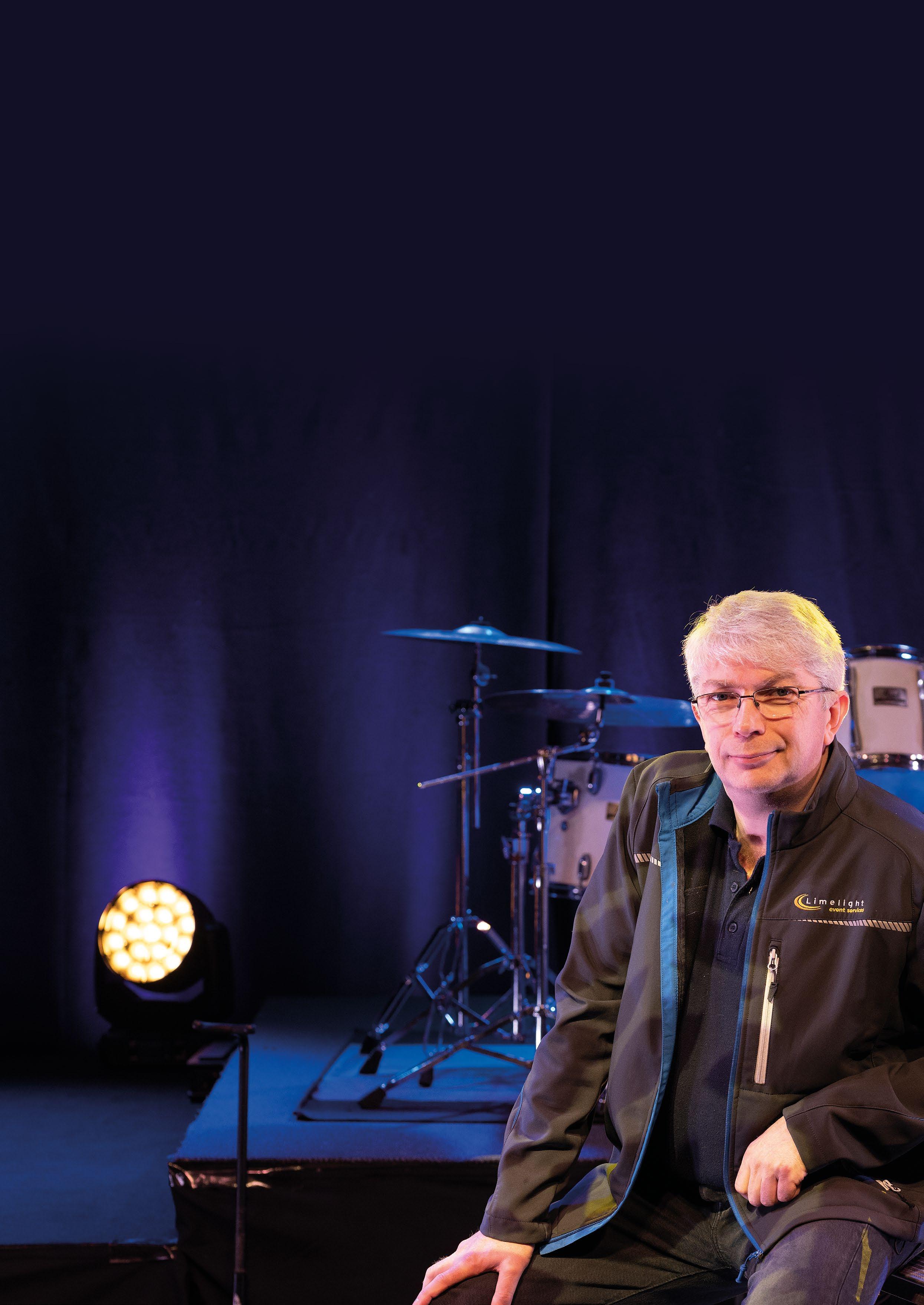
“The idea came about after a local band asked if they could use the warehouse for rehearsals, as other rehearsal spaces couldn’t accommodate social distancing. I realised that we could adapt our live outdoor equipment for live indoor events – enabling bands to live stream performances.”
Inverness band Lional has already trialled the set-up to great success, streaming an entire 50-minute gig live to Facebook. While Craig says that the experience has been a really positive one for all involved, he needs to consider how to monetise the new approach. “Bands are also struggling to make ends meet, so do we charge the people at home watching? It’s difficult when so much digital content is available for free these days. The competition is tough.”
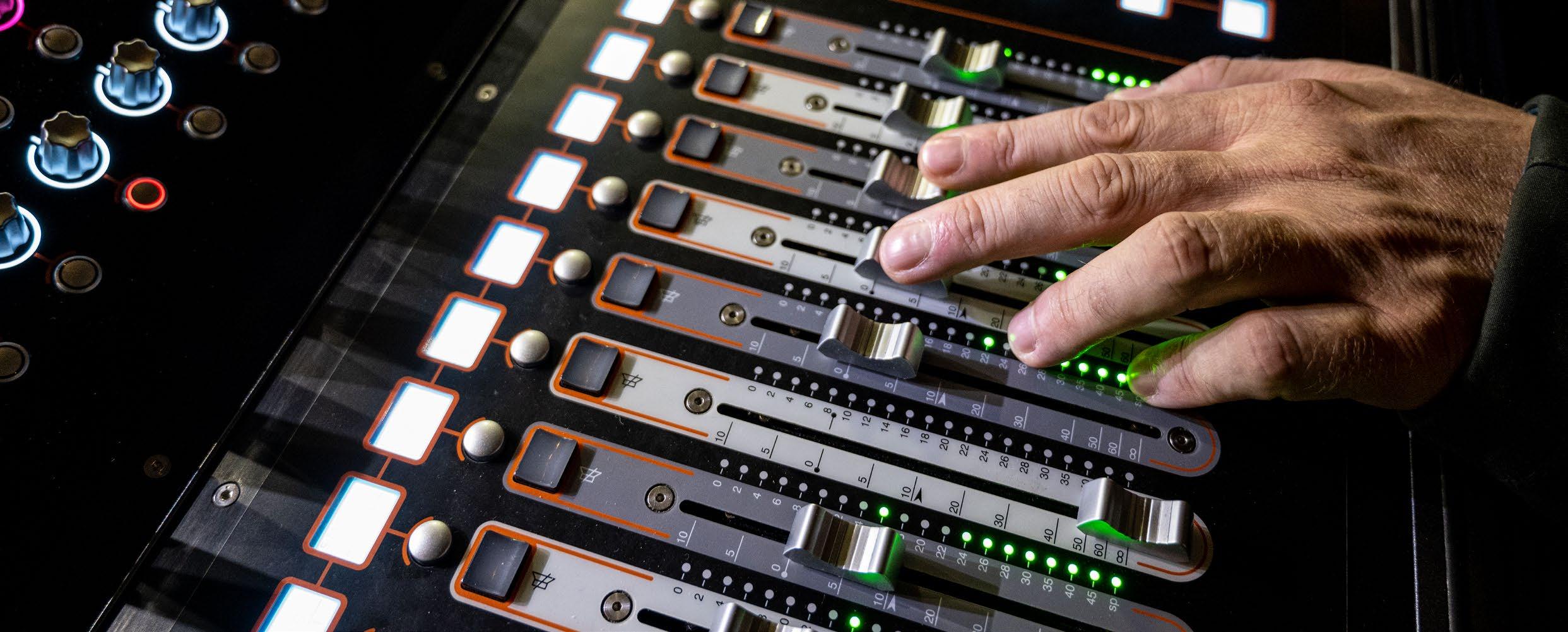
Craig is currently in discussions with HIE about innovation support to see how he can develop the idea. The company has the equipment and experience to put on TV-quality events, the challenge now is to start generating income – to safeguard the business, and the jobs of the company’s six employees, as well as the large number of freelancers it works with.
HIT THE LIGHTS!
EDEN COURT (PARTLY) REOPENS AND ASKS THAT WE ALL COME ALONG
Eden Court is Scotland’s largest single-site arts venue, home to two theatres, two multi-purpose studios, two cinemas, three galleries, and an educational outreach programme that connects thousands of school children to the arts each year. A long-standing cultural institution whose continuous development and ambition ensure the region prospers as a place of creativity – the loss of Eden Court would be unimaginable.
And while the impact of COVID-19 has been immense, with almost the entire workforce furloughed during lockdown and a complete 2020 programme of events cancelled, significant emergency funding has ensured Eden Court’s survival. A £250,000 grant from the Pivotal Enterprise Resilience Fund, managed by HIE on behalf of the Scottish Government, was a critical first step in aiding Eden Court’s recovery – and was followed by £750,000 from the government’s Performing Arts Venues Relief Fund.

Eden Court reopened its cinema, café and bar at the end of October. Chief executive James Mackenzie-Blackman says:
“Our building serves a lot of different functions, so we’ve had to reimagine how the space is laid out and how it will work for the future.” “We’re creating a new entrance and exit at the back of the building, which will be used by staff, visitors and artists, allowing the existing front entrance to be solely for the general public, supporting a more effective track and trace system.”
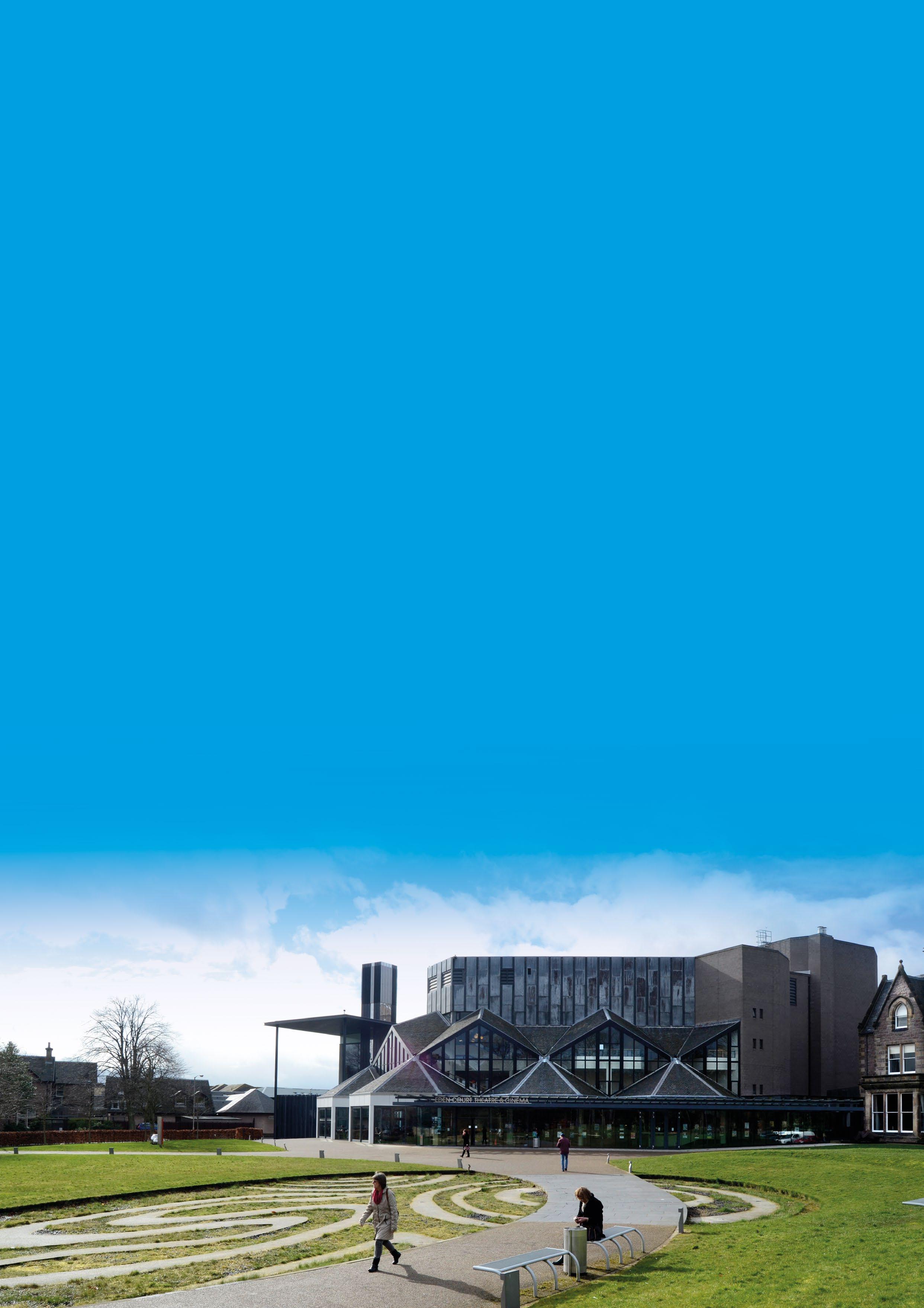
With theatres across the country to remain closed, Eden Court’s 840-seat Empire Theatre continues to make a different kind of impact in the community. It remains Highland Council’s humanitarian aid distribution centre, with the large stage serving as a warehouse for emergency food parcels, sent to the region’s most vulnerable, including those who are shielding or experiencing food poverty.
Following the success of Scottish Opera’s outdoor tour of Scotland in September, which included a sold-out sun-filled afternoon in Eden Court’s car park, James believes that more performing arts will be adapted for the outdoors – and also hopes to see the return of the hugely popular ‘Under the Canvas’ music sessions next summer. As well as supporting Eden Court to secure different funding streams, James said that HIE has provided invaluable emotional support and guidance during what has been an incredibly challenging time. He said: “Our account manager, Rhona, has offered both practical advice, and a huge amount of empathy. She’s understood the complexity of our situation and has been at the end of the phone throughout all of this.
“And on top of everything, she has maintained a long-term vision, and continues to encourage important conversations about Eden Court’s future growth and development. COVID has really highlighted how important and unique the HIE account management dynamic is.”
To anyone who would like to support Eden Court, James has a simple request: “Come and visit! Whether it’s to watch a film or have a drink, we really want to see people returning to Eden Court. If you’re working from home and just want to get out for a change of scene, come and have a coffee, and make use of our Wi-Fi. By simply showing up, people will be making a meaningful contribution to our recovery.”









